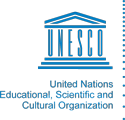2015. 8 p.
Periodical title:
International Journal of Educational Development, 41, pp. 237-244
Description:
Although the provision of life-saving antiretroviral (ARV) treatment is central to the medical and policy response to the HIV pandemic, relatively little research in the SADC region and in Namibia particularly, attends to HIV-positive people's experiences and the social effects of taking ARV treatment, with children being least focused on. The study from which the paper is drawn contributes to this dearth by examining the experiences of HIV-positive high school learners on ARV treatment in Khomas Region, Namibia. The study adopted a qualitative case study design based mainly on individual interviews with a purposive, select sample of eight learners at the site school where one of the authors is a teacher-counsellor. Pervasive stigma and discrimination in school notwithstanding, learner journeys reflect shifts from deep despair towards the emergence of voice, positive self-concept, as well as resilient dispositions and behaviour. Using a theory of health-related stigma and discrimination, this paper does two things. First, it contributes to understanding the complex reciprocal relationship between cause and effect of stigma and the attendant discriminatory practices emerging from ‘othering’ and marking the ‘other’ as aberrant. Second, it raises pressing questions on the place and position of schools and teachers in high HIV prevalence contexts, characterized by pervasive stigma and discrimination and where stable family structures, parental oversight and ‘normal’ progression through school cannot be assumed. It raises questions on the nature and form of school support necessary to positively contribute to learner well-being and school completion for those HIV positive and on ARV treatment.
Themes:
Populations:
Resource types:
Keywords:
Languages:
Record created by:
IIEP


